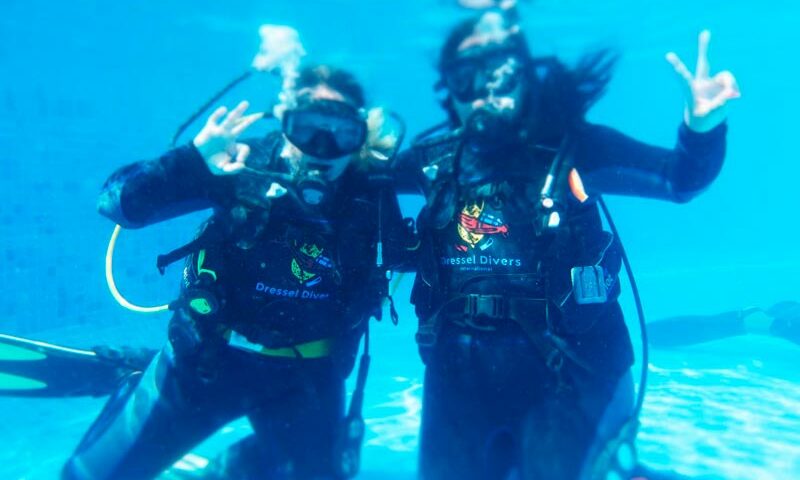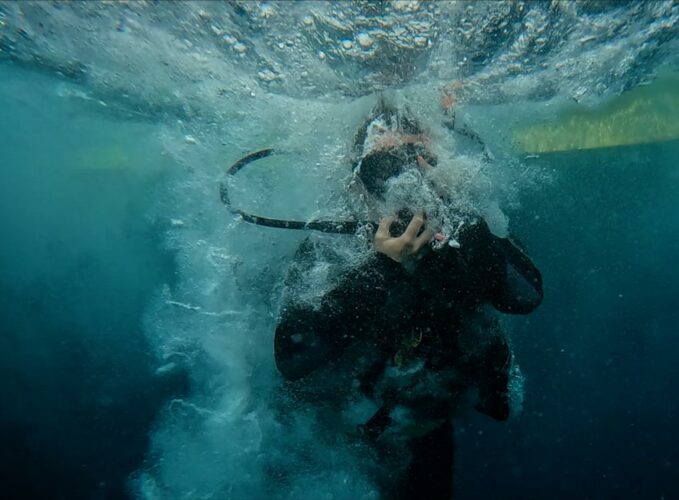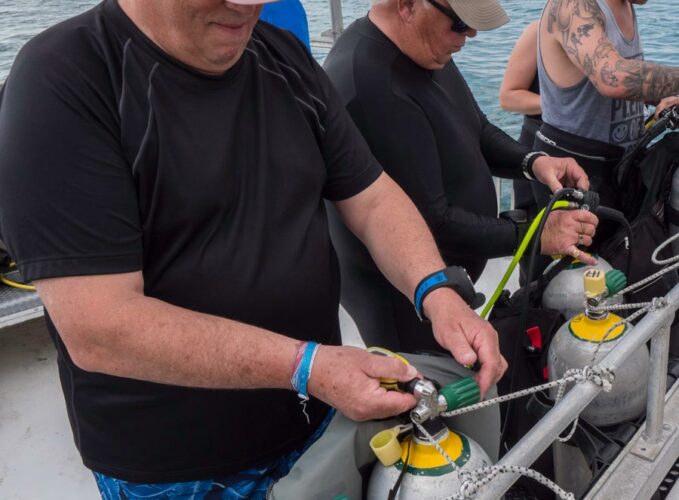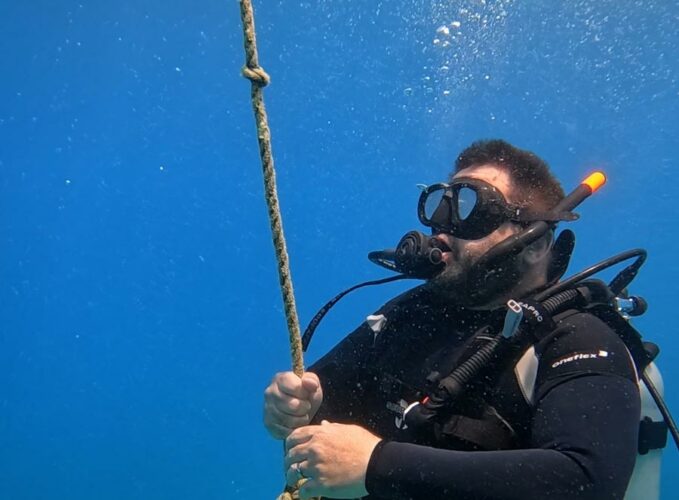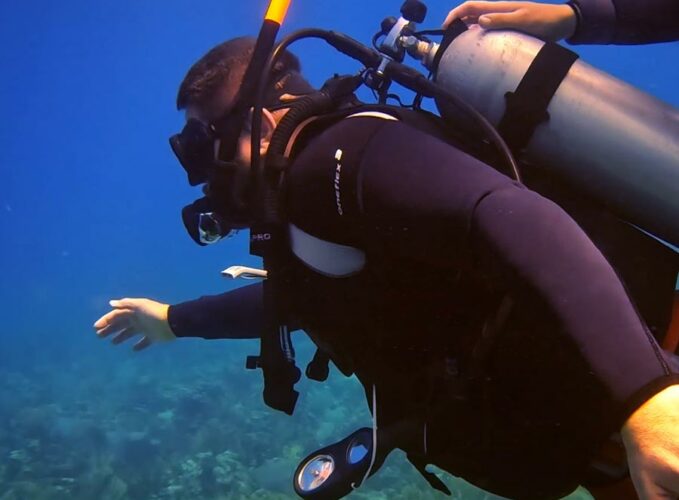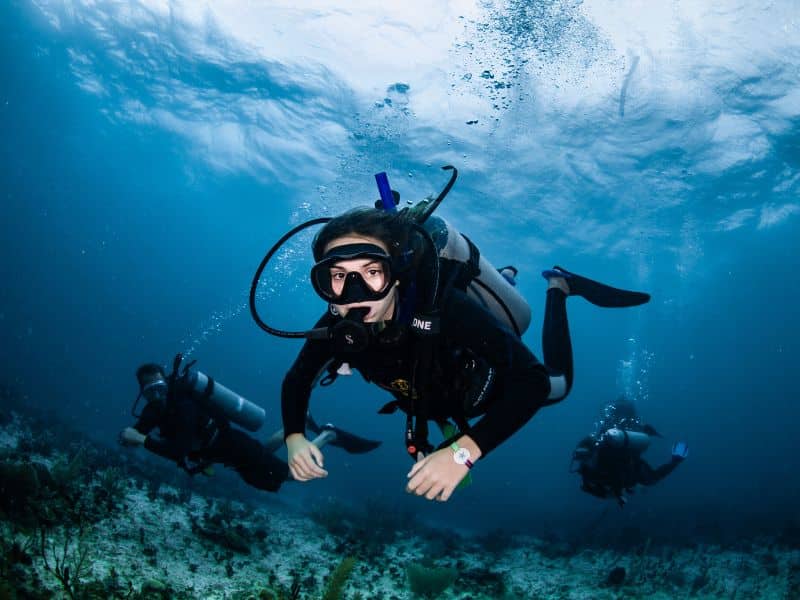4. Is It Safe to Dive If I Am Overweight?
If there is any sport, we, overweight people love, it is scuba diving. Diving we feel light, weightless, relieved and calm. The physical effort is not excessive and on top of that, a lot of calories are lost.
However, we cannot forget that being overweight has drawbacks to your scuba diving performance. Let’s review them and how we overcome them in Dressel Divers.
a. Risk of decompression sickness (DCS)
You are a diver, so you already know why decompression sickness happens: nitrogen is diluted in your body because of the pressure and it has to be expelled as you ascend. The deeper you dive and the longer you stay under; the more nitrogen accumulates. So far nothing new.
But what you may not know is that fat stores nitrogen better than other tissues and that excess fat can take longer to eliminate it.
This is a problem because both the tables and the dive computer follow the parameters of a person of standard weight. In other words, they do not include the variable excess fat in their parameters, so their calculations about the time you will need to dissolve nitrogen can be wrong.
How do we get around this inconvenience at Dressel Divers?
The first measure is being more conservative with the calculations. We are never going to reach the limits. It gives us a wider margin of action and reduces risks.
Another important aspect is that at Dressel Divers, we offer free Nitrox. When diving with Nitrox, you are using air that contains less nitrogen. Therefore, your body absorbs less of this element.
b. Air Consumption
Another drawback is that oxygenating a larger body volume, as a general rule, requires greater air consumption, unless you have the skills that we cover in this article 10 Technical Diving Tips to Reduce Air Consumption
In Dressel Divers, there is the possibility of ordering larger air cylinders than usual.
c. Physical condition
There is no doubt that if you want to dive, you must be able to perform the physical effort that scuba demands.
Despite being an undemanding sport physically, diving requires some effort. For example: carrying the complete equipment to the boat, swimming on the surface and in the currents, or climbing the boat ladder carrying a tank.
So, we thought seriously about how we could help our clients on these points, and the answer was clear: we do it for you.
Our staff carries the tanks to the boat, so you don’t have to carry them, nor climb the ladders with a cylinder on your back. A member of our crew lifts it out of the water when you have taken it off before going up the ladder.
At Dressel Divers, we do drift dives. So, when the dive is over, the group ascends, and the boat is waiting for them on the surface. In this way, our guests hardly have to swim on the surface or against the current.




